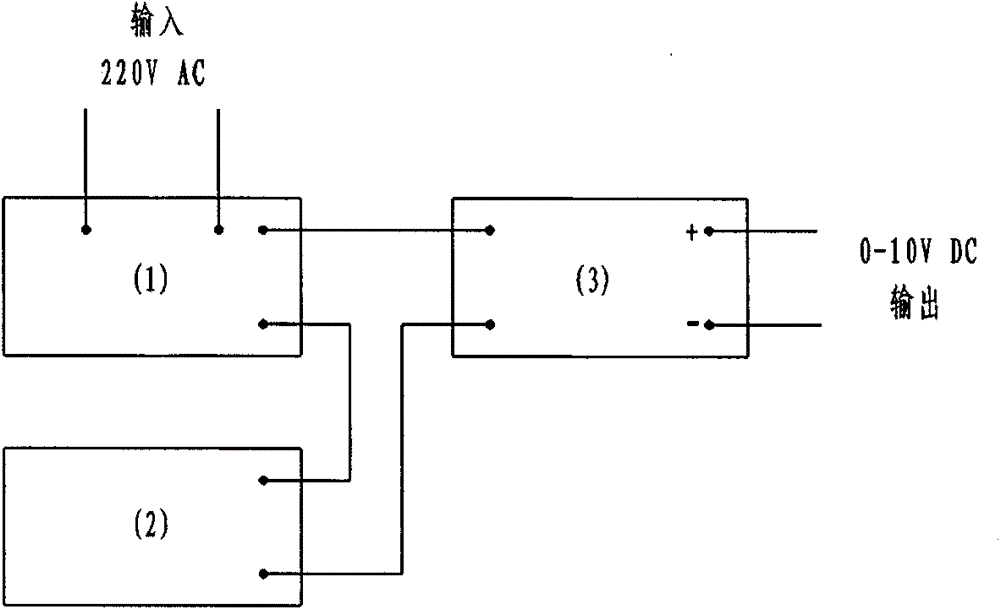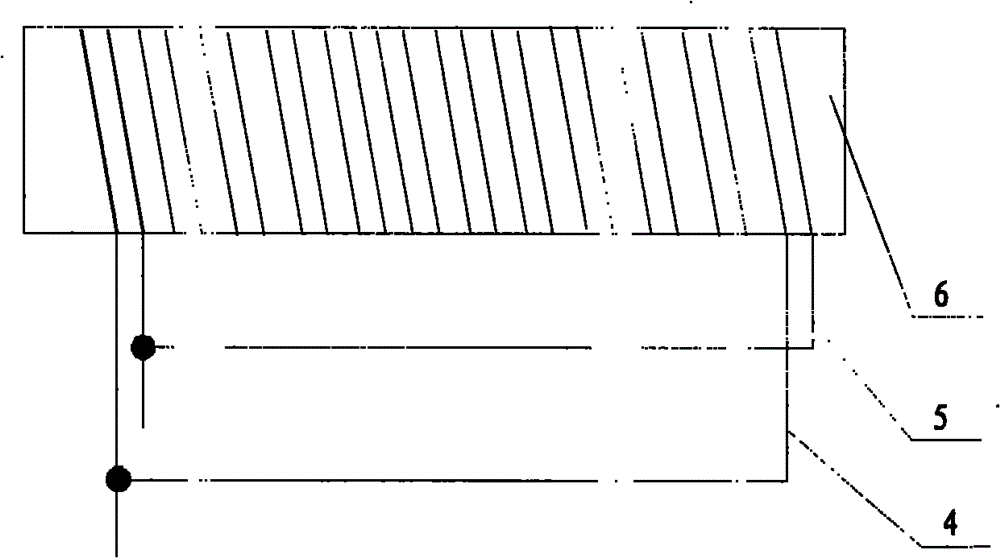A Surface Wetness Sensor
A sensor and wetting technology, applied in the field of sample surface wetness measurement devices, can solve the problems of easy consumption of electrode materials, difficult sensor miniaturization, and distortion of measurement results, so as to achieve good reproducibility of measurement results, avoid material consumption, and true measurement results Effect
- Summary
- Abstract
- Description
- Claims
- Application Information
AI Technical Summary
Problems solved by technology
Method used
Image
Examples
Embodiment 1
[0028] Embodiment 1: as figure 1 , image 3 As shown, a surface wetting sensor is characterized in that: it includes a signal source 1, a surface wetting sensing unit 2 and a detection output unit 3;
[0029] The signal source 1 generates an electrical signal and provides it to the surface wetting sensing unit 2; the surface wetting sensing unit 2 detects the surface wetting information and converts it into a corresponding current signal; the detection output unit 3 converts the current signal of the surface wetting sensing unit 2 into voltage signal and output.
[0030] The signal source 1 includes a reference oscillator 7, a reference voltage source 8, an electronic switch 9, a current amplifier 10 and an output interface 11;
[0031] The reference oscillator 7 generates accurate square waves, and different frequencies are selected by jumpers; the reference voltage source 8 generates a stable reference voltage, and the size of the reference voltage is changed through a var...
Embodiment 2
[0043] Embodiment 2: as Figure 5 As shown, the difference from Embodiment 1 is that the insulator 6 is provided with a number of micro-holes with equal spacing, and gold wires pass through the micro-holes to form parallel winding metal wires.
Embodiment 3
[0044] Embodiment 3: as Figure 6 As shown, different from Embodiments 1 and 2, the insulator 6 is only provided with microgrooves at both ends. The gold wires are wound in the grooves to form a structure parallel to each other.
[0045] The above-mentioned metal wires may be precious metal wires, or other metal wires with strong corrosion resistance.
PUM
| Property | Measurement | Unit |
|---|---|---|
| diameter | aaaaa | aaaaa |
Abstract
Description
Claims
Application Information
 Login to View More
Login to View More - R&D
- Intellectual Property
- Life Sciences
- Materials
- Tech Scout
- Unparalleled Data Quality
- Higher Quality Content
- 60% Fewer Hallucinations
Browse by: Latest US Patents, China's latest patents, Technical Efficacy Thesaurus, Application Domain, Technology Topic, Popular Technical Reports.
© 2025 PatSnap. All rights reserved.Legal|Privacy policy|Modern Slavery Act Transparency Statement|Sitemap|About US| Contact US: help@patsnap.com



